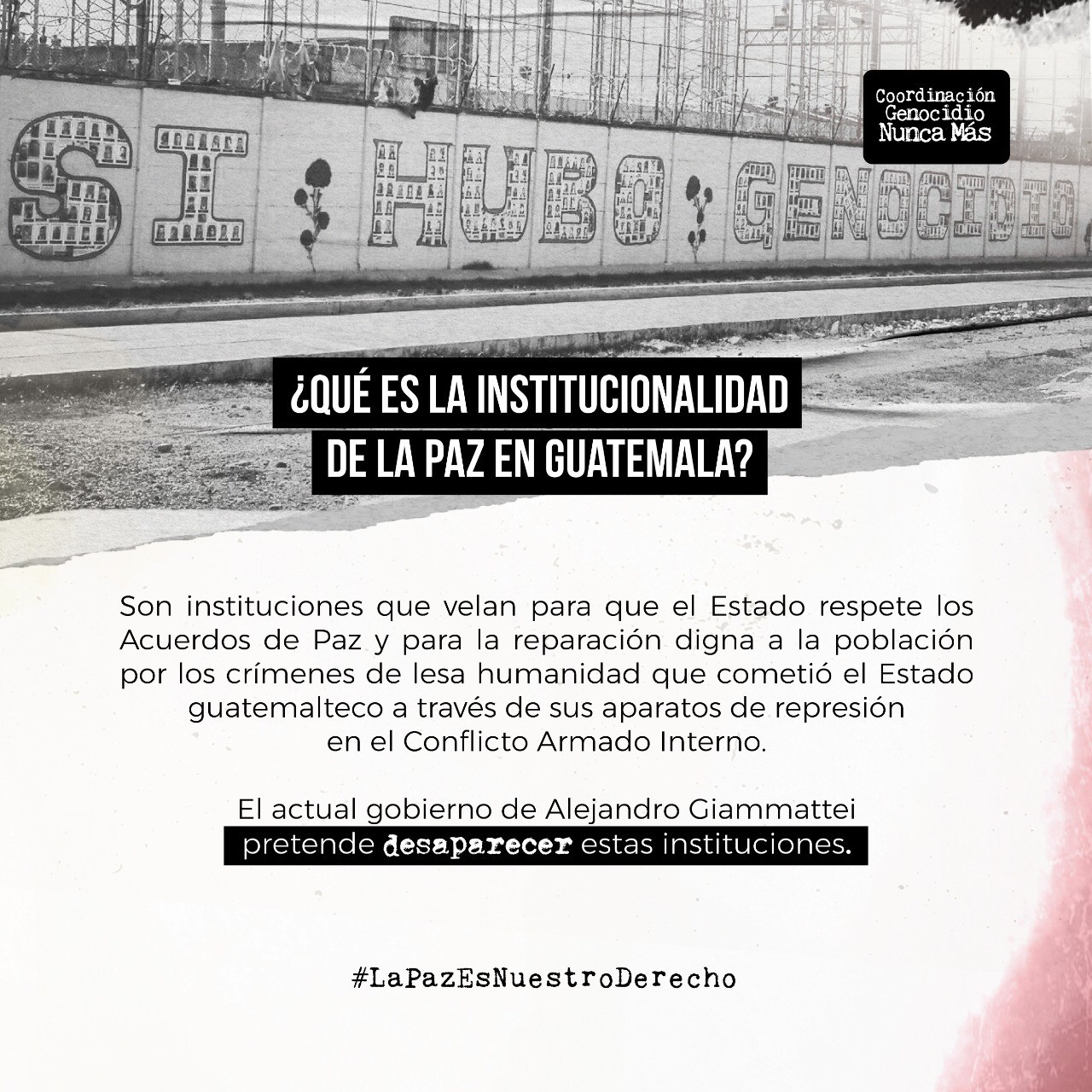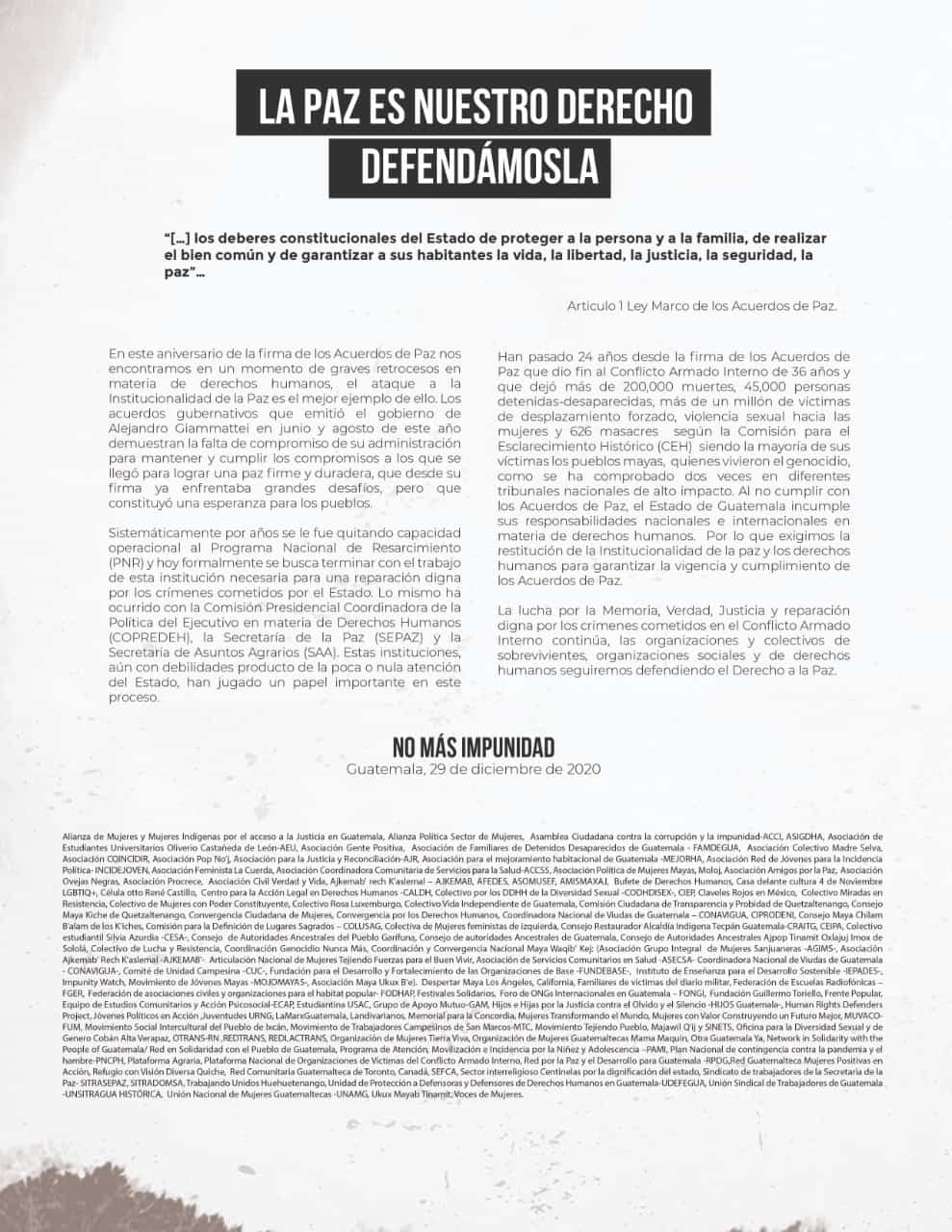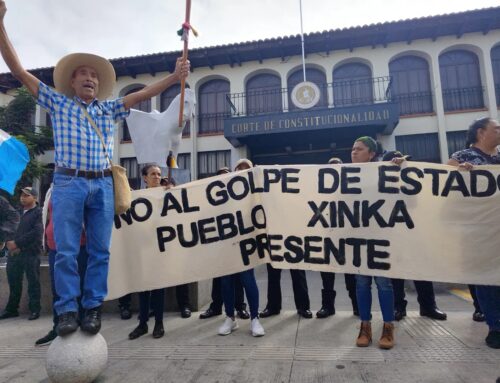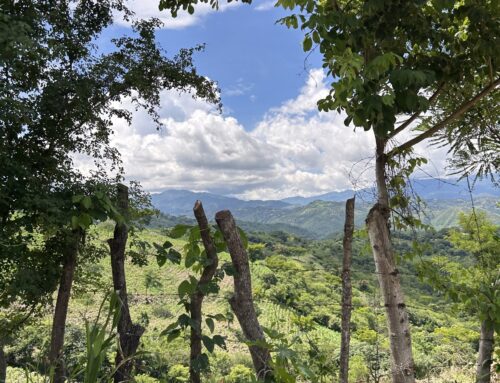
“What is the institutional framework of peace in Guatemala? They are institutions that ensure that the State respects the Peace Accords and provides dignified reparation to the people who suffered crimes against humanity committed by the Guatemalan State through its repressive apparatus during the Internal Armed Conflict.
The current government of Alejandro Giammattei intends to eliminate these institutions. #PeaceIsOurRight”
Credit: Genocide Never Again Coalition
On the 24th anniversary of the Peace Accords the obligations acquired by the Guatemalan State are still pending, nevertheless Giammattei’s administration has close by decree three critical institutions for survivor’s rights: the Secretary of Peace (SEPAZ), Secretary of Agrarian Affairs (SAA) and the Presidential Coordinating Commission of the Executive Politics in Human Rights Matters (COPREDEH), in a clear violation and dismissal of the Peace Accords.
NISGUA stands in solidarity with the survivors, collectives and human rights organizations that today and everyday remind us that Peace is a right.
24 YEARS AFTER THE SIGNING OF THE PEACE ACCORDS
PEACE IS OUR RIGHT
MAY WE DEFEND IT
“[…] the constitutional obligations of the state is to protect individuals and the family, to carry out the common good, and to guarantee its inhabitants life, liberty, justice, safety, and peace”…
-Article 1, Framework of the Peace Accords
On the anniversary of the signing of the Peace Accords, we find ourselves in a moment of serious setbacks on human rights. The attack on the Peace Institutions is the best example of this. The governmental agreements that the Alejandro Giammettei administration decreed in June and August of this year show its lack of commitment to maintaining and fulfilling past agreements to achieve a stable and lasting peace. The Peace Accords have already come up against many challenges since their signing. Still, they gave hope to the people.
For years, operational capacity has been systematically taken away from the National Compensation Program (PNR), and now the state formally seeks to end the work of this crucial institution that provides dignified reparations for crimes committed by the state. The same has occurred with the Presidential Commission for Coordinating Executive Policy in the Field of Human Rights (COPREDEH), the Secretariat for Peace (SEPAZ) and the Secretariat for Agrarian Affairs (SAA). These institutions, even with their weaknesses (caused by receiving little or no attention from the state), have played an important role in the reparations process.
24 years have passed since the signing of the Peace Accords. The Peace Accords put an end to the 36-year Internal Armed Conflict that left more than 200,000 dead, 45,000 people detained and disappeared, more than a million victims of forced displacement, sexual violence against women, and 626 massacres. All of these facts are according to the Historical Clarification Commission (CEH). The majority of the victims who suffered the genocide were from Maya communities, as has been proven twice in two separate Guatemalan courts. By not complying with the Peace Accords, the Guatemalan state has not fulfilled its national and international responsibilities on human rights. Therefore, we demand the restoration of the Peace Institutions and respect to human rights, in order to guarantee the validity and fulfillment of the Peace Accords.
The fight for memory, truth, justice, and dignified reparations for crimes committed during the Internal Armed Conflict continues. As organizations and collectives of survivors, and human rights organizations, we will continue defending the right to peace.
NO MORE IMPUNITY
Guatemala, December 29th 2020
Read the Statement in Spanish






Leave A Comment